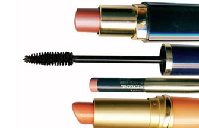DIY beauty gurus put their best face forward
 |
| Skin-deep decisions |
 |
| Wearable fashion |
As a TV celebrity, Li says she has to work under great pressure and has to look good while doing it. So on her talk show, she always recommended the beauty products she had found to her audience.
She decided to start her label J Plus at the end of 2009. The label is known for its 4-D facial mask, which "feels like you're wearing a plant mask when you apply it". Using her influence, Li promotes her brand on her talk show, emphasizing its natural elements. It has a strong fan base.
Nic Peng, also known as "Brother Nic", found fame with his blog ranking the top 100 skin creams. "It was a tough job, and I had to use 10 creams within one or two months," Peng says.
As part of this process, Peng reviewed the creams and expanded his portfolio by writing more stories with different angles. In July 2009, Peng launched his own label Afrella.
With so many labels in the Chinese market, why do consumers choose these labels? College student Wang Hongyi thinks she has the answer.
"Their products are not expensive, and they have a good reputation," Wang says.
She adds most of Naruko's products are priced at under 500 yuan ($80) - a very competitive price in the cosmetics market.
J Plus and Peng's products are priced no higher than 300 yuan.
"I hope my brand will become an international one in the future. There is so much space for homegrown beauty labels to grow," Niu says.
According to China Hairdressing and Beauty Association, local brands built by beauty gurus account for nearly 14 percent of the market.
"The strongest feature is the founder who creates this label. Usually, they attract consumers with good prices and, most importantly, their reputations," says beauty products analyst Zhang Yi.
















